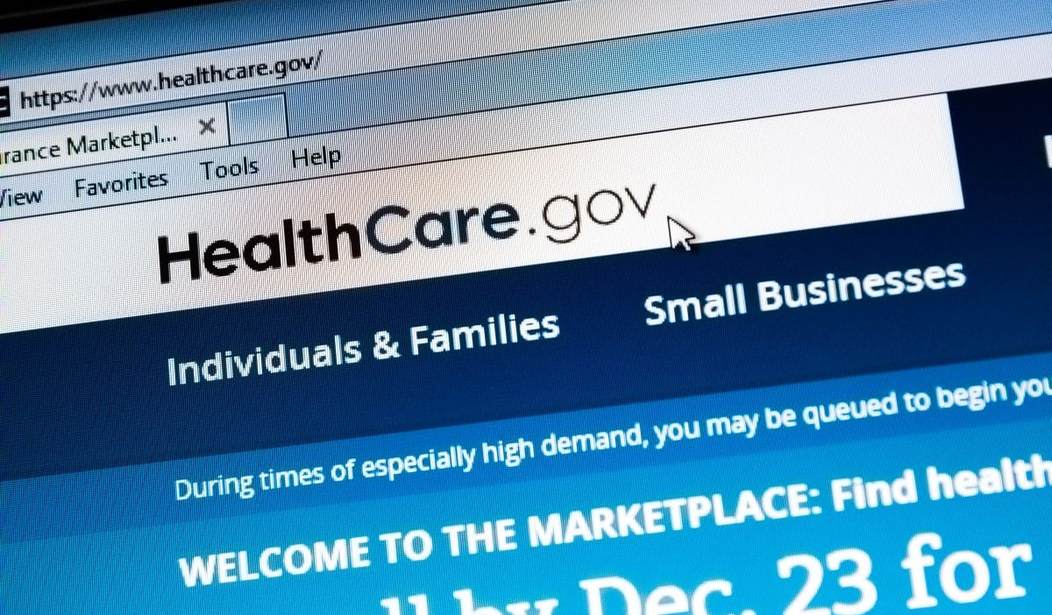What would happen if several state Obamacare exchanges were left without any policies to sell?
That problem may have to be faced by three states as soon as next year. Alaska, Alabama, and Wyoming are being served by only one insurance company — Blue Cross Blue Shield and their subsidiary, Premera Blue Cross in Alaska.
In addition to Obamacare failing in those three states, the Wall Street Journal reports that more than 650 rural counties in the United States have only one insurance company servicing their exchanges.
So far, more than 650 counties appear on track to have just one insurer on the exchanges in 2017, according to the Kaiser Family Foundation, which is tracking withdrawals as they become public. That would be up from 225 in 2016, when the state of Wyoming, among other areas, already had just one ACA marketplace competitor. Of the counties in jeopardy of having only a single exchange insurer next year, 70% have populations that are mostly rural, said Cynthia Cox, a researcher at the foundation.
Disclosures of new market entries or further pullbacks will change the totals in coming months, Ms. Cox said. Filings in many states aren’t yet public, and insurers can tweak their approaches until September.
Kori Allen, a bookkeeper in Kodiak, Alaska, this year has an exchange plan from Moda Health Plan Inc., which will pull out of the state’s ACA marketplace next year. Ms. Allen, 36 years old, who receives a federal subsidy that helps with her premiums, worries about what will happen when there is only one insurer, Premera Blue Cross, offering exchange products: “It’s going to be a monopoly, basically; ‘here’s the price, take it or leave it.’”
Premera Blue Cross, which had steep losses in Alaska’s exchange last year, said it is committed to the market there. “We have been working very closely with regulators and legislators to establish a long-term solution to make the market more sustainable and attract more insurers to the state,” said a spokeswoman.
The government has little recourse in this situation. About all the Obama administration can do is beg.
An Obamacare market with no sellers would leave thousands of enrollees unable to use tax subsidies to buy insurance coverage. And the government doesn’t have any particular legal power to cajole carriers into setting up shop in the markets they find undesirable. The most they can do, it turns out, is ask really nicely.
“There is no lever that the government can pull except moral assuaging,” says Sabrina Corlette, a research professor at Georgetown’s Center on Health Insurance Reforms.
The three markets that currently have one carrier — Alabama, Alaska, and Wyoming — are all largely rural and, in the case of the latter two, sparsely populated states. Wyoming has the smallest population of any state, while Alaska comes in at 48th.
The Obamacare law actually tried to anticipate this situation, but fell short in the implementation of the plan.
Sec. 1334 requires the federal government to contract with two multi-state plans, or MSPs. These MSPs would, in theory, provide coverage in all 50 states. And that would mean every Obamacare enrollee would get some choice of plan.
Building a national plan can be difficult. It means contracting with doctors all across the country. So the law intended for the MSPs to scale up over their first four years. They would have to sell in at least 60 percent of all states in their first year, 70 percent in their second year, 85 percent in the third, and 100 percent in the fourth year.
This year is the fourth year — and the program has fallen behind schedule.
From the get-go, the federal government only found one insurer willing to participate in the MSP program, Blue Cross Blue Shield.
And BCBS hasn’t been able to scale up its nationwide coverage as quickly as the law envisioned. In 2016, it sold MSP coverage in 32 states — fewer than half of what the law had envisioned at that point in time.
The slow-motion meltdown of Obamacare continues. This upcoming year is critical because most insurance companies will determine whether they stay or go based on the rate increases granted by state insurance commissions. Given the massive bleeding of red ink, those increases are expected to be hefty. Without them, many more carriers will be forced to quit the exchanges.
The problem for insurance companies goes to the fundamental flaw in Obamacare: more older, sicker people are signing up rather than younger, healthier people. This has caused huge losses that even very large companies are having trouble absorbing.
Once the death spiral begins, it will probably go quickly, bringing an untimely — and ruinously expensive — end to Obamacare.










Join the conversation as a VIP Member